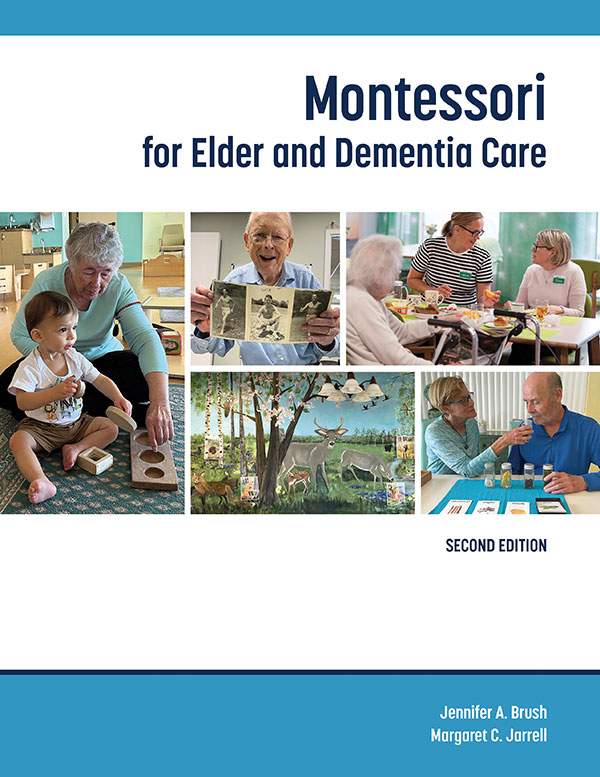Comprehensive Dementia Care Charlotte: Supporting Families with Thoughtful Solutions
Comprehensive Dementia Care Charlotte: Supporting Families with Thoughtful Solutions
Blog Article
Effective Dementia Treatment Techniques for a Better Quality of Life
In the world of dementia treatment, the implementation of effective methods is critical for enhancing the high quality of life for both people impacted by the condition and their caretakers. Recognizing the distinctive phases of dementia permits for customized interventions that address the evolving demands of individuals-- from advertising cognitive engagement in the very early stages to ensuring dignity in late-stage treatment.
Recognizing Mental Deterioration Stages

In the very early phase, people might experience light amnesia and trouble with familiar jobs. Care techniques should concentrate on maintaining self-reliance and providing cognitive excitement. The middle phase is identified by increased complication, trouble acknowledging loved ones, and impaired judgment. During this stage, caregivers ought to implement structured regimens and ensure a safe atmosphere. Finally, in the late phase, individuals may shed the capability to interact and require support with day-to-day activities. Here, caring treatment is vital, stressing convenience and dignity.
Acknowledging these stages allows caregivers to adapt their techniques and offer assistance that lines up with the individual's current demands, eventually assisting in much better management of the condition and improving the total caregiving experience. Recognizing dementia phases is therefore a fundamental aspect of reliable mental deterioration care.
Interaction Methods
Efficient interaction is a crucial part of mental deterioration treatment, specifically as the illness advances through its various phases. As cognitive capabilities decrease, it ends up being important to adapt interaction techniques to meet the needs of individuals with mental deterioration. Making use of clear, simple language is critical; caregivers must avoid complicated sentences and jargon, opting rather for simple, concise expressions.
Non-verbal interaction plays a just as considerable duty. Faces, motions, and intonation can share warmth and understanding, frequently improving spoken messages. Maintaining eye get in touch with and an open position promotes a sense of link and safety and security, encouraging people with mental deterioration to involve more completely in discussions.
It is also advantageous to hold your horses and enable adequate time for feedbacks. People might need extra time to procedure information and develop their thoughts. If comprehension shows up lacking., duplicating or rephrasing inquiries may be needed.
Last but not least, focusing on the individual's rate of interests and individual background can facilitate much more meaningful communications. Taking part in familiar topics can stimulate favorable memories and emotions, better enriching the interaction experience (memory care charlotte). By employing these techniques, caregivers can considerably boost the high quality of communications, advertising self-respect and regard for people dealing with dementia
Developing a Safe Atmosphere
Developing a safe environment for people with mental deterioration is crucial to promoting their well-being and freedom. A properly designed room can dramatically minimize the threats of crashes and enhance the top quality of life for those impacted by this problem.
Lights plays a critical role as well; using natural light any place feasible and integrating night lights can assist people browse their surroundings safely. Additionally, identifying spaces and important objects can assist memory and orientation, this website decreasing confusion and anxiousness.
It is likewise vital to create a familiar environment by personalizing the room with photos or cherished products, which can evoke helpful site favorable memories and a sense of belonging.
Including furnishings that is both functional and comfy adds to a supportive environment, allowing individuals to engage in day-to-day activities effortlessly. Inevitably, a safe atmosphere not just safeguards versus physical dangers yet also cultivates a complacency, which is necessary for the psychological health of those coping with dementia.
Engaging Regimens and tasks
Engaging activities and organized regimens are essential parts in the care of people with dementia, as they advertise cognitive function, psychological security, and social interaction. These tasks need to be customized to the individual's passions, abilities, and stage of cognitive decline. charlotte care home. Basic, repetitive jobs such as gardening, crafts and arts, or cooking can offer significant interaction, permitting individuals to use their abilities while cultivating a sense of success
Developing a daily regimen aids create a predictable atmosphere, which can minimize anxiety and complication. This framework can include assigned times for dishes, tasks, and rest, making sure a balanced strategy to daily life. Integrating social interactions into these routines, such as group tasks or seeing family, additional enhances psychological wellness and battles feelings of isolation.
Additionally, physical tasks, such as walking or dancing, not just advertise physical health and wellness however additionally promote psychological involvement. Motivating participation in community events or support system can supply added possibilities for socialization. Overall, the integration of structured regimens and interesting tasks is important in improving the top quality of life for people with mental deterioration, fostering freedom and dignity while website link addressing their special demands.
Sustaining Caregiver Well-Being
Caring for people with dementia can be a requiring and mentally tiring experience, making it crucial to focus on the health of caretakers. Caregivers commonly face high levels of anxiety, anxiety, and physical exhaustion, which can bring about exhaustion otherwise resolved appropriately. To support their wellness, it is necessary to apply a multifaceted approach.
First, giving caretakers with accessibility to education and learning and sources can equip them with approaches to manage day-to-day difficulties. Assistance groups, both in-person and online, provide a system for sharing experiences, fostering a sense of area, and decreasing feelings of isolation. In addition, break treatment services make it possible for caregivers to take essential breaks, enabling them time to go to and recharge to their very own health needs.
Moreover, urging caretakers to involve in self-care practices-- such as regular exercise, healthy eating, and mindfulness-- can substantially enhance their strength. Advertising open interaction regarding their sensations and obstacles with member of the family or professionals likewise helps minimize emotional concerns.
Final Thought
Finally, effective dementia treatment approaches incorporate a thorough understanding of the illness's stages, the implementation of clear communication strategies, the facility of a secure atmosphere, and the promo of appealing tasks and organized routines. Furthermore, prioritizing the health of caretakers is necessary to sustaining high quality care. By incorporating these strategies, the overall quality of life for people with dementia can be substantially improved, cultivating a helpful environment that advertises self-respect and psychological wellness.
In the world of mental deterioration treatment, the application of reliable strategies is crucial for improving the high quality of life for both individuals influenced by the illness and their caregivers. By utilizing these techniques, caregivers can considerably boost the quality of interactions, promoting self-respect and regard for people living with mental deterioration.

Caring for people with mental deterioration can be a requiring and emotionally exhausting experience, making it vital to prioritize the well-being of caretakers.
Report this page